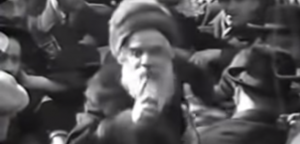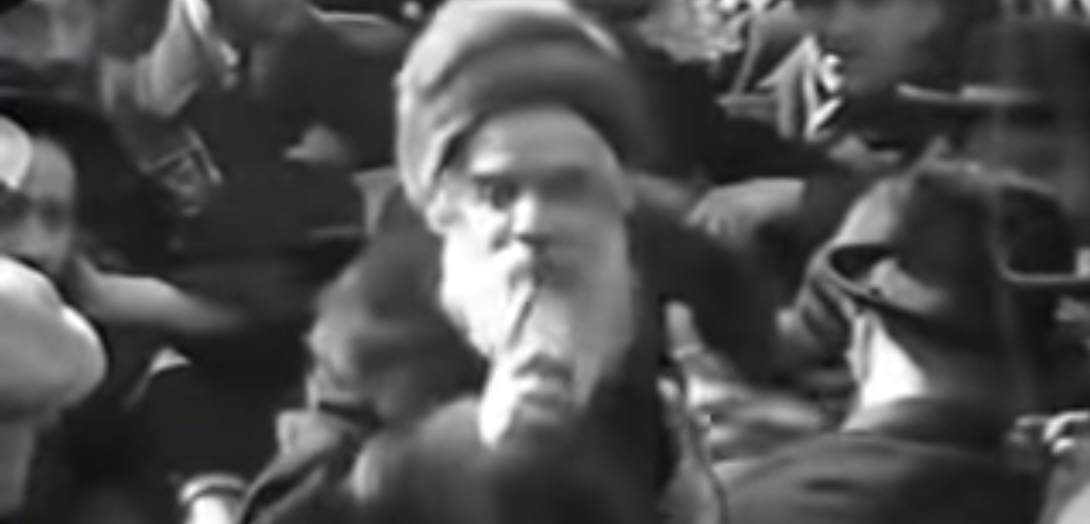
It was a war of words, a battle of will, power, and courage. Who would blink first: Yehuda or Yoseph?
This is the scenario. Before the brothers departed Egypt. Yoseph had surreptitiously planted his silver goblet in his brother Binyamin’s sack. Not long after Yoseph sends his brothers back to Canaan, his agents pursue them, arrest them, and accuse them of robbery. Lo and behold, Binyamin is caught with the silver goblet. Binyamin is brought back to the palace where Yosef sentences him to eternal servitude. The brothers are helpless.
Yehuda, having accepted full responsibility for Binyamin’s safe return, pleads with Yoseph while he also prepares for battle. After all, he exclaims, “How can I return to my father without my brother, lest I see the evil that will befall my father!” (cf. Genesis 44:34).
Yoseph sees the true feeling that Yehuda and the brothers show for the youngest one, and cannot continue his charade. He sends all the Egyptians from the room and bursts out, “I am Yoseph! Is my father still alive?” (Genesis 45:3) Hardly a commentary fails to expound upon the obvious question. Yoseph was just told how eagerly Yaakov awaits the return of Binyamin. Therefore Yoseph knew that Yaakov was alive. Why now did he ask the question?
It was the Jewish wedding of the century, the daughter of Rabbi Chaim Elazar Schapiro, the illustrious Munkatzcer Rebbe, was to marry the son of the Rebbe of Partzov. Both Chassidic dynasties were royal, aristocratic, and majestic. And the ceremony was to be equally regal. The bride and groom would ride in opulent carriages, drawn by four white horses. The wedding meal was so large that every needy member of the community would be allowed to partake. It was the Jewish event of the century!
There was so much excitement that an actual news crew came to film the wedding. The footage would be incorporated as part of the pre-feature newsreels shown at American movie theatres across the Atlantic! “Imagine!” thought the reporters, “this would attract hundreds of Jewish people who had roots in Europe into the theatre!” The difficult part was to convince the Munkatzcer Rebbe to speak for the cameras. The Rebbe vehemently opposed the frivolities and wanton ideas of the cinema, and would not participate in a film. The producer assured the Rebbe that only his voice, not his face (an assurance that proved to be false), would be presented to the large audiences.
“Rebbe, this is a wonderful opportunity for you to talk about the Hassidic court of Munkatzc! Imagine how many Jews would be fascinated by your life’s work. It would also be a wonderful opportunity to send personal wishes to all your followers who have left Europe to come to America.”
Finally, the Rebbe consented. The film caught the Rebbe speaking for the microphones and the camera that was obscured from his view. He was very brief. Tearfully, he repeated his message a few times and then turned his head and stopped talking.
The American crew was excited. They were going to present the wedding with its entire mystique and majesty to American audiences.
However, when the wedding film was shown in American theatres the scene of the pomp and circumstance of the ceremony was a stark contrast to the interview with the Rebbe. They did not see a jubilant Rabbi Schapiro toasting the large audience upon the joyous occasion. Instead, they saw Rabbi Schapiro pleading tearfully on the silver screen. “Yidden heet der Shabbos!” “Jewish Brothers! Keep the Shabbos!” Those were the only words he said. Then he turned his face and wept. Those were the only words that the Rebbe chose to speak. (The film is now archived at the Museum of Jewish Heritage in New York City.)
Yoseph had bottled his emotions from the moment he saw his brothers upon their entry to Egypt until the moment he revealed his identity in the privacy of his chambers. But all the while of his pent-up emotion there was one question he felt he had to ask. How is my father? Is he alive and well? Although the information was afforded him, he felt a responsibility — almost instinctive in nature — to ask about his dear father’s welfare. All he had on his mind throughout the ordeal was that one question. The moment he was free to talk his piece, he instinctively asked, “Is my father still alive? How has he fared through this trying ordeal? Those words were on his heart and mind for 22 years. The moment he had the opportunity to speak, he did not chastise his brothers. He did not demand retribution. He did not seek vengeance. All he did was reveal his true feelings and asked the question that was quashed for 22 years. How is my father?
Good Shabbos
Rabbi Mordechai Kamenetzky
More Parsha Parables is now shipping! Request your copy by writing to [email protected] Just $15.95 through Project Genesis!
Copyright © 1998 by Rabbi M. Kamenetzky and Project Genesis, Inc.
If you enjoy the weekly Drasha, now you can receive the best of Drasha in book form!
Purchase Parsha Parables – from the Project Genesis bookstore – Genesis Judaica – at a very special price!
The author is the Dean of the Yeshiva of South Shore.
Drasha is the e-mail edition of FaxHomily, a weekly torah facsimile on the weekly portion
which is sponsored by The Henry and Myrtle Hirsch Foundation
Books by Rabbi Mordechai Kamenetzky:
 |
 |


